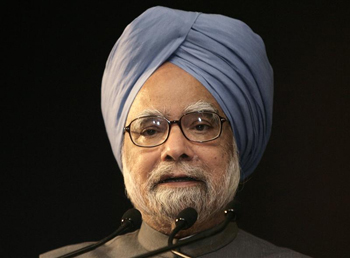
The PM's September 29 meeting with Sharif, which took place amid escalating firing on the Line of Control and the international border, began with Singh making no bones about his resolve to protect India's territorial integrity.
In fact, Singh's "Churchillian moment", reminiscent of the British leader's declaration in 1942 that he had not become the King's first minister to "preside over the liquidation of the British Empire", even surprised his senior aides as the PM brushed aside Sharif's arguments.
Singh responded to Sharif's attempt to raise India's "role" in Baluchistan, saying the matter had been raised by previous Pakistani PMs as well without an iota of proof being offered. The firmness must have struck Sharif, considering that it was Singh who heeded Islamabad's insistence to put Pakistan's allegation of Indian meddling in Baluchistan on the bilateral agenda.
Sources said Singh's unusually sharp words expressing his "big disappointment" with Sharif on Friday indicate his annoyance over the Pakistani PM not heeding an unambiguous signal that firing on the LoC and the border must stop.
On his way back from Beijing, Singh told the media, "Let me say that I am disappointed, because in the New York meeting, there was a general agreement on both the sides that peace and tranquility should be maintained on the border, on the Line of Control as well as on the international border and this has not happened."
In the New York meeting, Singh had also categorically rejected the Pakistani suggestion that restoration of the 2003 ceasefire agreement could be discussed by a politico-military committee, insisting the matter be sorted out at the military level.
The PM made it plain that Indian and Pakistani directors general of military operations must sort out the ceasefire violations and restore peace and tranquillity on the LoC and the international border.
Singh's insistence on the DGMO mechanism stemmed from India's view that Pakistan's civilian government could not be less accountable than the military. "The government in Pakistan is expected to implement the agreement arrived at in New York," said sources.
Singh's tough talk on Friday signals his waning patience as the political calendar in India begins to rapidly move towards the 2014 elections and Congress wards off the opposition charge of being soft on Pakistan's aggression on the borders.
Sources said the PM junked his moderate approach — even when being critical of Pakistan — as he felt nothing short of an unequivocal comment would work, given the rising tensions on the J&K border and LoC.
On Friday, the PM did express the hope that Sharif would "even at this late hour" recognize that the developments on the border do not augur well for both nations, but this time around he made it clear that the onus was on Pakistan to mend fences.
In the past, Singh has laboured hard to convince Pakistani leaders that combating terrorism and preventing hostile behaviour on the border was in Pakistan's interest. For him to give vent to his frustration would mean that he feels the scope for a middle ground with Pakistan is shrinking.
The episode and subsequent lack of action on the part of Pakistan has strengthened the assessment in India that Sharif remains a somewhat tricky customer who might say one thing at a meeting only to go ahead to do just what he wants.
The Pakistani PM is seen as neither willing nor capable of reining in the army, but the Indian government — at least in the current situation — has decided that it cannot continue to receive political flak at home without holding Sharif to account.








Comments
Add new comment